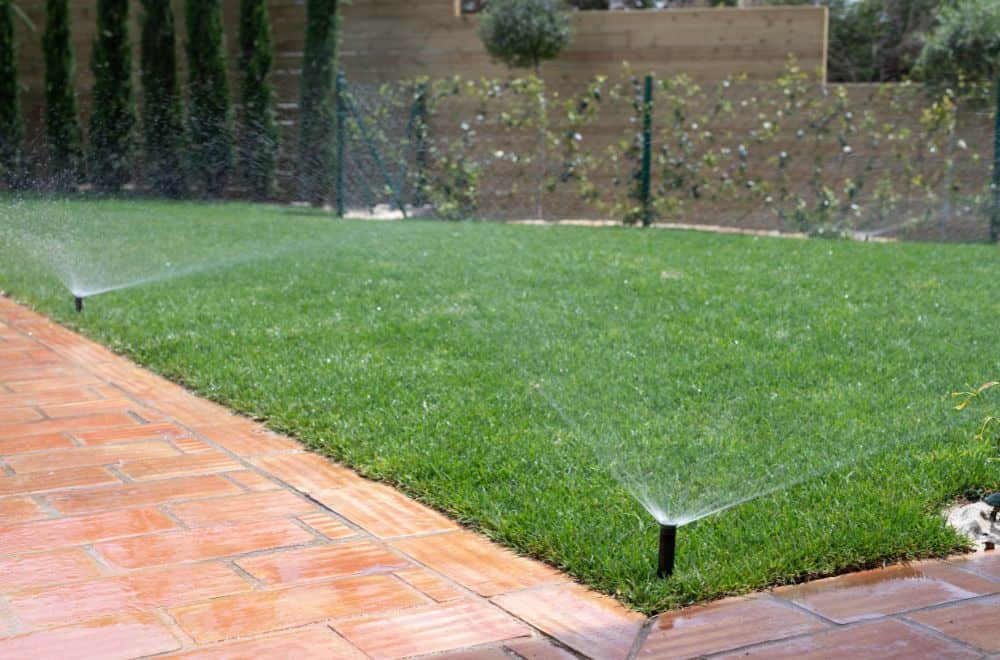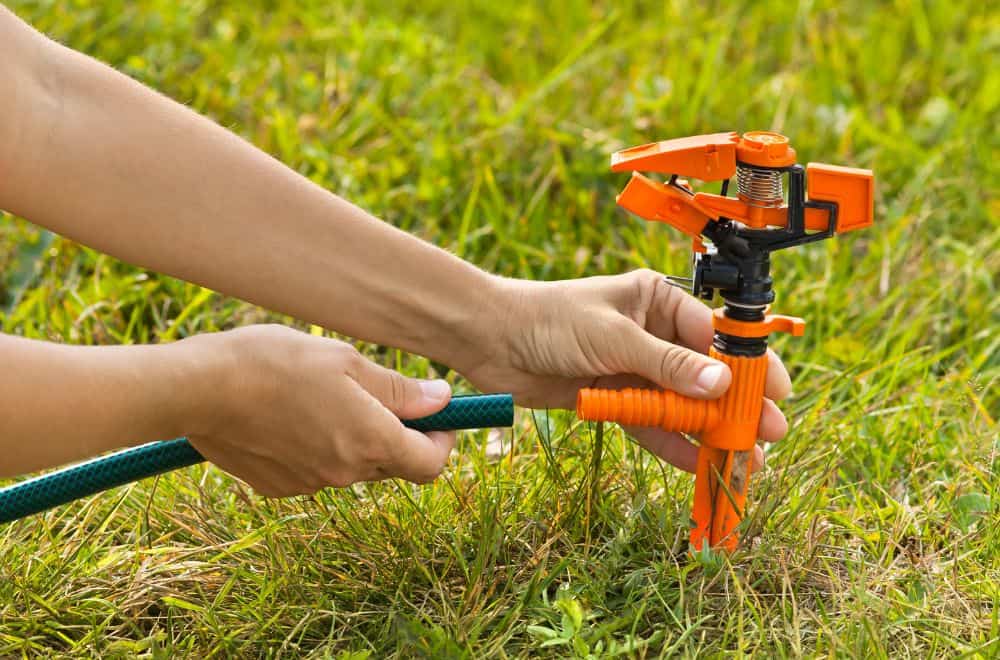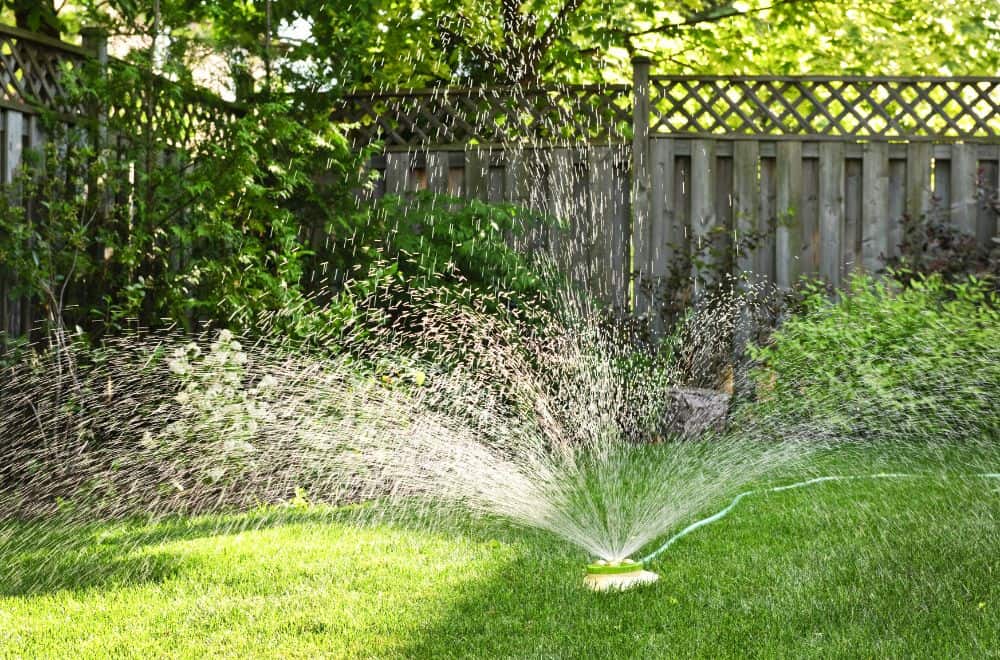Once you decide to have a lawn, flowerbeds, or a vegetable garden, you will need to invest in a quality irrigation system. Of course, you need to plan a budget for it, whether you choose a sprinkler system or in-ground irrigation.
The final bill can show less than $1,000 or drain the last penny from your pocket, depending on the chosen model and the necessary accessories. So, let’s see how much will an irrigation system cost you.
Factors Affecting Irrigation System Cost
Many factors affect irrigation system costs. You can pay under $500 for a regular garden hose and faucet or invest over $10,000 in the high-quality system, depending on your needs. Here are a few things you need to keep in mind before making the final decision:
Area size
Simply put, the bigger area your irrigation system covers, the more it costs. Basically, you will need more valves, pipes, and sprinklers for a large lawn than a small garden. Plus, the installation will require more work, time, and digging.
|
Lawn size |
Average cost |
| 0.25 acres (0,1 hectares) |
$2,200 to $3,300 |
|
0.5 acres (0,2 hectares) |
$3,500 to $6,500 |
| 0.75 acres (0,3 hectares) |
$6,550 to $9,800 |
|
1 acre (0,4 hectares) |
$9,850 to $13,070 |
Local prices
Always check the local prices when researching irrigation system costs. The average investment may vary significantly depending on the state and region you live in. For example, material costs in California and Wyoming will drastically differ.
Soil type
The soil type predominating on your lawn will significantly affect the price of the irrigation system you need. If the soil is sandy, it will probably collapse while digging and fill in the holes.
On the other hand, rocky soil can be tricky to dig, and it can damage tools and machinery. Professionals you hire bear the risk of wrecking their equipment, so their price will be higher.
The terrain slope
If you want to irrigate sloping land, your plan should include water pressure and flow. Plus, you need to think twice about pipes layout in the ground. While it is not impossible to place irrigation in a sloping yard, it will undoubtedly cost you more.
New vs. existing landscape
You will pay less for an irrigation system if you install it simultaneously with your lawn or flowerbeds. Adding a new system to an existing garden involves more work, time, and money in the end.
Roots and pipes
If you have trees in your yard, a piece of trenching machinery can cut the underground roots. It will damage the trees and slow the installation progress.
Consequently, your irrigation system will cost you more, potentially compromising the budget you planned. Remember that you will have the same problem with any pipe, installation, or cable type preexisting in the ground.
Water supply and quality
Water affects the cost of an irrigation system in several ways. Poor quality water can cause scale to build up on sprinklers over time. Besides, low water pressure means that the contractor needs to expand the pipes or install additional pumps you need to pay for.
If you have a low water flow, you should install a water tank or cistern. Unfortunately, it will add a fair amount to the final bill.
Material quality
The phrase ‘the cheaper – the better’ doesn’t apply when planning an irrigation system. Low-cost sprinklers will rust over time, and poor-quality pipes can crack during the winter.
Therefore, it is better to initially pay more for quality material than to waste money on maintenance and repairs in the years to come.
Labor costs
Some homeowners choose to install an irrigation system by themselves to lower labor costs. While the project thus requires a smaller budget, you will still need an electrician, plumber, and someone to dig up holes and channels in the ground.
Cost by Irrigation Type

As I have already mentioned, you can save a lot of money if you decide to buy a hose and water your lawn daily. If you want something more advanced, you have a wide choice of irrigation systems on the market nowadays.
You can pick out any of a few types, including drip irrigation or high-tech installations you can control with your smartphone. Naturally, the type of irrigation system you choose is one of the primary price indicators you need to pay.
Surface systems
A surface system is a traditional choice, suitable and practical for large lawns. You need to pay between $2,000 and $3,000 for 0.3 acres (0.12 hectares). On the other hand, the price for a lawn of 1 acre (0.4 hectares) will vary between $6,000 and $8,000.
Still, sprinklers spray water all around, so a system with more control will probably be more suitable for flowerbeds or a garden.
Drip system
A drip irrigation method consists of micro-sprays, which water your plants from the roots. This system has the best price per acre of area, and it varies from $800 to $1,200.
Plus, you will save a lot on your water bill because drip irrigation consumes minimal amounts to water your garden.
Furrow method
If you have sloping land, you will benefit from a furrow irrigation system. It involves digging channels that conduct small amounts of water to specific parts of the soil. That is a convenient solution because you don’t need costly pumps or water tanks.
You can install it for about $1,000 to $1,400. The downside of this solution is that it is less effective compared to the drip method and sprinklers.
Rotor system
If you choose a rotor irrigation system, you will discover that, like the drip system, it conducts water directly to the plants. Plus, you can use it for large areas as well as sprinklers.
The difference is that the price is much lower compared to the traditional method, so you will need to pay approximately $1,500 and $2,000 for 1 acre (0.4 hectares).
Cost by Zone
Your yard can include several different types of trees, flowers, or vegetables. Plus, add a lawn, and you will discover that the one single irrigation system can’t meet different watering needs.
In such a case, you can install sprinklers in one area, a drip system in the next one, or make any other irrigation combinations.
|
Zone numbers |
Material and installation costs |
| 1 zone |
$650 to $1,000 |
|
2 zones |
$1,300 to $2,000 |
| 3 zones |
$1,950 to $4,000 |
|
4 zones |
$2,600 to $5,000 |
| 5 zones |
$3,250 to $6,000 |
|
6 zones |
$3,900 to $6,500 |
| 7 zones |
$4,550 to $7,000 |
Remember that complicated irrigation systems cost more than basic ones. The more different zones you have in your land, the higher price you need to pay for watering them.
Additional Costs

The irrigation system bill sometimes includes additional costs, besides the basic system price, labor, and installation. The more complex design you want, the more you will pay so that you can install:
Flow control sensor
This device monitors water consumption and notifies you if there are any problems with the irrigation system. It can cost anywhere between $300 and $1,000, depending on its model and features.
If you have a leaking somewhere or the water flow suddenly decreases, you will get a notification on your computer or smartphone right away.
Wi-Fi controller
Some people are ready to pay extra to control the irrigation system. Basically, you will only need a Wi-Fi controller to supervise your lawn without getting out of bed.
You can use this device to turn the water on and off and control the amount of water consumed. However, you need to set aside about $200 for this pleasure.
Irrigation consultant
If you plan to install an irrigation system for a large area, you should hire a consultant. They can help you with all vital decisions such as system selection, materials, and design. On average, an irrigation consultant charges 5 to 10% of the project value.
DIY vs. Professional Irrigation Installation
If you are skillful with DIY projects, you will probably consider saving money and skipping the professional installation.
The rule of thumb is that the average cost for irrigation system installation is 1.5 times the material cost. However, you may want to rethink the idea because:
- Equipment – The professional installers will choose flexible pipes when necessary. They won’t crack during the winter or corrode over time. Plus, they will recommend the best sprinkles, valves, and other equipment suitable for your land.
- Skill – You will get your irrigation system much faster if you hire professionals. In addition to their knowledge and skill, they come with all the necessary equipment. You will probably spend the money you save on repairs and maintenance later.
- Necessary help – No matter how skilled you are, you probably can’t do all the work yourself. Therefore, you will need the help of professionals from different fields.
For example, you will probably need to hire a licensed plumber who charges $80 to $120 per hour. Then, you will need an electrician to connect an automatic timer and controllers to the irrigation system, which will cost you an additional $90 to $150 per hour.
Summary
Irrigation system cost depends on many factors, such as system type, land area, and installation costs. Sometimes you will need additional investments, like a Wi-Fi controller or a water tank. DIY projects cost less than hiring a professional, but they often come with potential risks.

Leave a comment